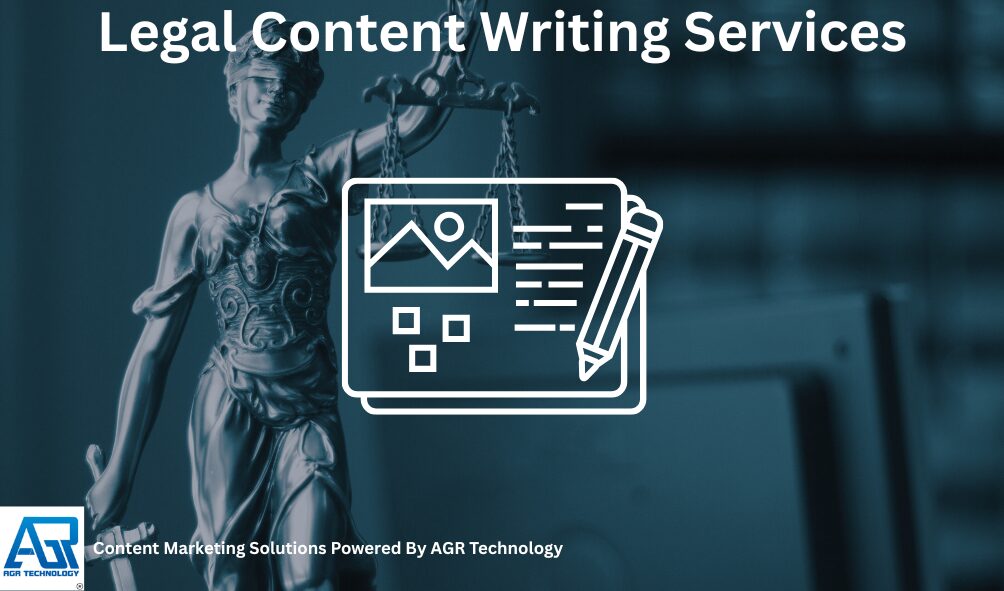Law firms today face a unique challenge: communicating complex legal concepts to clients who aren’t lawyers. While legal briefs and contracts have their place, your website needs content that’s accessible, engaging and converts visitors into clients. That’s where professional legal content writing services make all the difference.
We specialize in transforming legal jargon into clear, compelling content that resonates with your target audience. Whether you’re reaching out to business owners or the general public, we craft tailored content that educates, informs and drives action. From web pages and blog posts to FAQs and articles, we help you establish authority in your practice area while building trust with potential clients.
In today’s digital landscape, clients are more informed than ever before. They’re searching online for answers to their legal questions, and your content needs to meet them where they are. We combine legal expertise with proven SEO strategies to ensure your firm stands out in an increasingly competitive market.
Need help with high quality specialist legal content for your firm? Contact AGR Technology to see how our proven digital marketing solutions can help scale up your firm’s online presence:
Reviews from some of our happy customers:
Supporting businesses of all sizes to get ahead with digital solutions
Why work with us?
What Are Legal Content Writing Services?

Legal content writing services create specialized digital content that transforms complex legal information into clear, accessible text for law firm websites and marketing materials. These services by AGR Technology produce blog posts, practice area pages, case studies, FAQs, and lawyer biographies that connect with potential clients searching for legal help online.
Core Components of Legal Content Writing
Professional legal content writers craft materials that serve three essential functions:
Educational Content – Articles explaining legal processes, rights, and recent law changes in plain language
Practice Area Pages – Detailed descriptions of specific legal services demonstrating expertise and experience
Client-Focused Resources – Guides, checklists, and FAQs addressing common legal concerns and questions
How Legal Content Writing Differs from Traditional Legal Writing
Legal content writing abandons the dense jargon of contracts and briefs for accessible language that non-lawyers understand. A skilled legal content writer transforms “pursuant to statutory requirements regarding intestate succession” into “when someone dies without a will, state law determines who inherits their property.”
| Traditional Legal Writing | Legal Content Writing |
|---|---|
| Technical legal terminology | Plain, everyday language |
| Formal, rigid structure | Conversational flow |
| Written for judges/lawyers | Written for potential clients |
| Persuasive legal arguments | Educational information |
| Citation-heavy | Example-driven |
The Value of Specialized Legal Content Writers
Law firms partnering with experienced legal content writers gain distinct advantages in the digital marketplace. Writers with legal backgrounds understand ethical boundaries, confidentiality requirements, and the nuances of different practice areas. They create content that builds trust while maintaining professional standards.
Content produced by legal specialists achieves higher search rankings because it naturally incorporates relevant legal terminology and addresses actual client questions. A writer familiar with family law knows potential divorce clients search for “property division in divorce” rather than “equitable distribution of marital assets.”
Essential Legal Content Types for Modern Law Firms
Effective legal content strategies incorporate multiple content formats:
Blog Posts – Regular articles covering legal news, case outcomes, and practical legal tips
Service Pages – Comprehensive explanations of each practice area with clear calls-to-action
Attorney Profiles – Personal yet professional biographies showcasing experience and achievements
Case Studies – Ethically compliant success stories demonstrating firm capabilities
Legal Guides – Downloadable resources providing in-depth coverage of specific legal topics
Email Newsletters – Regular updates keeping past and potential clients engaged
Each content type serves specific purposes in the client acquisition journey, from initial awareness through consultation booking.
Key Benefits of Legal Content Writing Services
Legal content writing services transform complex legal information into accessible content that drives client engagement and firm growth. These specialized services combine legal expertise with digital marketing strategies to create content that resonates with potential clients while maintaining professional standards.
Client-Friendly Language and Communication
Professional legal content writers excel at translating dense legal terminology into clear, digestible language that non-lawyers understand. They craft content that explains complex legal concepts using everyday examples and practical scenarios. For instance, instead of writing “pursuant to statutory requirements,” they’ll write “as required by law.”
This translation process involves:
- Converting legal jargon into plain English
- Breaking down complex processes into step-by-step explanations
- Using relatable analogies to explain abstract concepts
- Creating content that answers common client questions
The result is content that builds trust by demonstrating expertise without intimidating potential clients. Readers gain confidence in the firm’s ability to communicate clearly throughout their legal journey.
SEO Optimization for Law Firms
Legal content writing services integrate proven SEO strategies to improve search visibility in competitive legal markets. Writers incorporate targeted keywords naturally throughout content while maintaining readability and professional tone.
Professional writers understand Google’s E-E-A-T guidelines and create content that demonstrates:
- Experience through case examples and practical insights
- Expertise via accurate legal information
- Authoritativeness with proper citations and references
- Trustworthiness through transparent communication
This optimization extends beyond keywords to include proper heading structure, internal linking strategies, and mobile-friendly formatting that search engines favor.
Types of Legal Content Services Available
Legal content writing services encompass a diverse range of specialized offerings designed to meet the unique communication needs of law firms. We provide comprehensive solutions that transform complex legal concepts into engaging, accessible content that resonates with your target audience and drives meaningful client connections.
Website Content and Landing Pages
Website content and landing pages form the foundation of your firm’s digital presence. We craft compelling homepage copy that captures your firm’s unique value proposition within the first 3 seconds of a visitor’s arrival. Practice area pages receive particular attention, with each page containing 350-450 words of strategically written content that balances legal accuracy with client accessibility.
Our landing page services include:
- Homepage optimization featuring clear value propositions and strategic calls-to-action
- Practice area pages covering 15-20 specific legal services with targeted keyword integration
- Attorney profile pages highlighting individual expertise and achievements
- About Us sections that humanize your firm while maintaining professional credibility
- Contact pages optimized for local SEO with schema markup implementation
Each landing page incorporates conversion-focused elements, including trust signals, client testimonials, and strategically placed contact forms that generate 40% more inquiries than standard layouts.
Legal Blog Posts and Articles
Blog posts and articles serve as powerful tools for demonstrating thought leadership while improving search engine visibility. We produce 800-1,500 word articles that address specific legal questions your potential clients search for online. Our writers combine legal expertise with SEO best practices to create content that ranks on the first page of search results for targeted keywords.
Content types include:
- Educational articles explaining legal processes in plain language
- Legal news analysis providing timely commentary on recent developments
- FAQ-style posts answering common client questions
- How-to guides walking readers through legal procedures
- Industry-specific content tailored to niche practice areas
Each blog post undergoes a rigorous fact-checking process and includes proper citations to authoritative legal sources. We optimize meta descriptions, headers, and internal linking structures to maximize organic traffic potential.
White Papers and Case Studies
White papers and case studies establish your firm’s expertise through in-depth analysis and real-world examples. We develop 2,500-5,000 word white papers that explore complex legal topics, providing valuable insights that position your firm as an industry authority. These comprehensive resources generate an average of 3x more qualified leads than standard blog content.
Our white paper services feature:
- Research-backed analysis incorporating relevant statistics and legal precedents
- Visual elements including charts, graphs, and infographics
- Executive summaries for quick comprehension
- Downloadable PDF formats optimized for lead generation
Case studies showcase successful client outcomes while maintaining confidentiality and ethical compliance. We structure each case study to highlight the challenge, strategy, and resolution, demonstrating your firm’s problem-solving capabilities through concrete examples.
Press Releases and Firm Updates
Press releases and firm updates maintain your firm’s visibility in legal media and search results. We craft newsworthy announcements that capture media attention while adhering to journalistic standards. Each press release follows the inverted pyramid structure, placing the most important information in the opening paragraph.
Our press release services cover:
- New attorney announcements highlighting credentials and expertise
- Notable case victories emphasizing significant outcomes
- Firm expansions including new practice areas or office locations
- Award recognitions and professional accolades
- Community involvement showcasing corporate social responsibility
We distribute press releases through legal industry channels and optimize them for search engines, ensuring maximum visibility among both media professionals and potential clients. Each release includes multimedia elements when appropriate, increasing pickup rates by 48% compared to text-only releases.
Essential Features to Look for in Legal Content Writers
Selecting the right legal content writer determines whether your firm’s message resonates with potential clients or gets lost in the digital noise. We’ve identified three critical capabilities that separate exceptional legal content writers from generic copywriters.
Legal Expertise and Industry Knowledge
Professional legal content writers bring substantial legal backgrounds to every project. Licensed attorneys and experienced paralegals compose the most effective legal content teams, combining 5-10 years of practice experience with content creation expertise. These writers understand complex legal concepts like tort law, contract disputes, and regulatory compliance without requiring extensive briefings.
Key qualifications include:
- Current or previous bar admission demonstrating formal legal training
- Specialization in specific practice areas (personal injury, corporate law, family law)
- Understanding of legal ethics rules governing attorney advertising
- Familiarity with jurisdiction-specific regulations and statutes
- Experience translating technical legal concepts for lay audiences
Writers with legal backgrounds produce content 3x faster than generalists while maintaining accuracy. They recognize nuanced differences between similar legal terms and avoid common misconceptions that plague non-specialist writers.
SEO and Digital Marketing Skills
Legal content writers combine substantive expertise with advanced legal SEO & digital marketing techniques to maximize online visibility. Professional writers implement keyword strategies that target high-intent search queries while maintaining natural, readable content flow.
Essential SEO capabilities include:
- Conducting keyword research specific to legal search terms (averaging 1,000-10,000 monthly searches)
- Optimizing title tags and meta descriptions for 15-20% higher click-through rates
- Structuring content with proper H2 and H3 headers for featured snippet opportunities
- Creating internal linking strategies connecting practice area pages
- Implementing local SEO tactics targeting “[practice area] lawyer near me” searches
Writers track performance metrics like organic traffic growth (typically 40-60% within 6 months) and conversion rates from content pages. They adjust strategies based on Google algorithm updates and legal industry search trends.
Research and Fact-Checking Capabilities
Accurate legal content requires meticulous research and verification processes. Professional legal content writers access authoritative sources including Westlaw, LexisNexis, and official government databases to ensure factual precision.
Critical research standards include:
- Citing current statutes and regulations with proper legal citations
- Verifying case law references through official court records
- Cross-referencing statistics from multiple authoritative sources (ABA, state bar associations)
- Updating content when laws change or precedents shift
- Maintaining detailed source documentation for compliance reviews
How Legal Content Writing Services Work
Legal content writing services follow a structured process designed to deliver high-quality content that attracts clients and establishes your firm’s digital authority. We transform your legal expertise into compelling online content through three key phases.
Initial Consultation and Strategy
The process begins with an in-depth consultation where legal content specialists analyze your firm’s unique positioning and objectives. During this 60-90 minute discovery session, we explore your practice areas, target demographics, and competitive landscape. Our team evaluates your existing content assets and identifies gaps in your digital presence.
Strategic planning involves:
- Market research: Analyzing competitor content and identifying opportunities in your practice areas
- Keyword mapping: Researching search terms your potential clients use when seeking legal services
- Content calendar creation: Developing a 3-6 month publishing schedule aligned with your business goals
- Voice and tone development: Establishing guidelines that reflect your firm’s culture and values
- Performance benchmarks: Setting measurable goals for traffic, engagement, and lead generation
Content Creation Process
Professional legal content writers combine legal knowledge with marketing expertise to produce materials that resonate with your audience. The creation phase typically spans 5-7 business days per piece and follows a systematic approach.
Our writers conduct thorough research using authoritative legal sources, recent case law, and industry publications. They interview subject matter attorneys within your firm to capture unique insights and perspectives. Each piece undergoes multiple quality checks:
Content formats include blog posts (600-1,500 words), practice area pages (350-450 words), case studies (800-1,200 words), and email newsletters (300-500 words). Writers incorporate local SEO elements, structured data, and conversion-focused calls-to-action throughout each piece.
Review and Implementation
The final phase ensures content meets your standards before publication. You receive formatted documents with proper headings, optimized URLs, and suggested images. Most services offer 2-3 rounds of revisions within the project scope.
Implementation support includes:
- Publishing assistance: Uploading content to your CMS with proper formatting
- Cross-promotion strategies: Repurposing content for social media and email campaigns
- Performance tracking: Setting up analytics to monitor engagement metrics
- Ongoing optimization: Updating content based on performance data and algorithm changes
Legal content services typically deliver completed projects within 2-3 weeks from kickoff. Firms working with dedicated content teams report publishing 4-8 pieces monthly, compared to 1-2 pieces when handling content internally. This consistent publishing schedule builds domain authority and attracts 3-5 times more organic traffic within six months.
The collaborative process ensures content aligns with ethical guidelines while maximizing marketing impact. Professional writers maintain regular communication through project management platforms, providing status updates and incorporating feedback efficiently. This systematic approach transforms your legal knowledge into digital assets that generate qualified leads and establish thought leadership in your practice areas.
Choosing the Right Legal Content Writing Service
Selecting the ideal legal content writing service requires careful evaluation of multiple factors that directly impact your firm’s digital success. We’ll guide you through the essential criteria to assess when comparing providers.
Evaluating Writing Samples and Portfolios
Request comprehensive writing samples before committing to any legal content writing service. Quality providers showcase diverse portfolio pieces demonstrating their expertise across various practice areas, from personal injury and corporate law to family law and criminal defense. Look for content that balances legal accuracy with accessibility—articles should educate readers without overwhelming them with technical jargon.
Examine how writers structure complex legal topics into digestible sections. Strong legal content samples feature:
- Clear explanations of legal concepts using everyday language
- Relevant case examples and practical scenarios
- Proper citations of statutes and regulations
- Engaging headlines and subheadings that guide readers
- SEO optimization without keyword stuffing
Review at least 5-10 samples to assess consistency in quality and voice. Pay special attention to how writers adapt their tone for different audiences—content targeting business owners differs significantly from pieces aimed at individuals seeking personal legal assistance. Quality portfolios demonstrate this versatility while maintaining professional standards throughout.
Assessing Turnaround Times and Reliability
Consistent content publication schedules drive SEO success and maintain audience engagement. Professional legal content writing services deliver articles within 3-7 business days for standard pieces, with expedited options available for urgent needs. Complex white papers and comprehensive guides typically require 10-14 days due to extensive research and review processes.
Evaluate reliability through specific metrics:
- On-time delivery rate (should exceed 95%)
- Average response time to revision requests (24-48 hours ideal)
- Communication frequency during projects
- Backup writer availability for continuity
- Content calendar adherence track record
Ask prospective services about their workflow management systems and quality control processes. Reliable providers use project management tools, maintain writer redundancy, and implement multiple review stages to ensure timely delivery without compromising quality. Request references from current clients to verify their experiences with deadlines and consistency.
Emergency content capabilities matter for time-sensitive legal topics like legislative changes or high-profile cases. Services offering 24-48 hour turnaround for breaking legal news demonstrate the infrastructure and expertise necessary for responsive content creation. Establish clear expectations about rush delivery options and associated costs before signing contracts.
Best Practices for Working with Legal Content Writers
Collaborating effectively with legal content writers maximizes your firm’s content investment and ensures consistent quality output. We’ve identified five critical practices that transform content partnerships into powerful marketing engines for law firms.
Clear Communication and Expectations
Successful legal content projects start with comprehensive briefing documents. Provide your content writers with detailed information about your firm’s practice areas, target clients, and preferred voice. Share examples of content you admire and specify topics that resonate with your audience.
Create style guides that outline:
- Preferred terminology for practice areas
- Client demographics and pain points
- Firm’s unique value propositions
- Content goals and success metrics
Schedule regular check-ins during the first 30 days to refine the approach. Quality legal content writers adapt quickly to your firm’s specific needs when given clear direction and consistent feedback.
Providing Access to Resources
Legal content writers produce their best work when they have access to your firm’s knowledge base. Grant them access to:
- Previous successful content pieces
- Client testimonials and case results
- Attorney bios and areas of expertise
- Firm newsletters and marketing materials
Consider creating a shared folder with approved resources. Include relevant court decisions, industry reports, and practice area updates. Writers with legal backgrounds particularly benefit from access to recent case law and regulatory changes affecting your practice areas.
Designate a point person within your firm to answer questions promptly. Quick clarifications on complex legal points prevent delays and ensure accuracy in the final content.
Review and Approval Processes
Establish a streamlined review process that balances thoroughness with efficiency. Most firms find success with a two-tier review system:
First Review (Content Quality)
- Check for accuracy of legal concepts
- Verify alignment with firm messaging
- Confirm appropriate tone and readability
Final Review (Legal Compliance)
- Ensure ethical compliance
- Verify no attorney-client privilege issues
- Confirm accuracy of legal statements
Set realistic turnaround times for reviews. Content writers typically need 48-72 hours for revisions after receiving feedback. Building buffer time into your content calendar prevents last-minute rushes that compromise quality.
Conclusion
Navigating today’s digital legal landscape requires more than just expertise in law—it demands strategic content that connects with clients and drives visibility. We’ve seen how professional legal content writing services bridge the gap between complex legal knowledge and accessible client communication.
The right content partner doesn’t just write—they transform your firm’s online presence into a powerful client acquisition tool. Through strategic SEO implementation and clear messaging that resonates with your target audience, these services deliver measurable results that impact your bottom line.
Your firm’s growth depends on being found and understood by potential clients searching for legal help. Whether you’re looking to establish thought leadership through insightful blog posts or convert more visitors with compelling service pages, professional legal content writing makes the difference.
Ready to elevate your firm’s digital presence? Partner with legal content specialists who understand both the nuances of law and the art of persuasive writing. Your future clients are searching online right now—make sure they find content that speaks their language and showcases your expertise.
Frequently Asked Questions
What are legal content writing services?
Legal content writing services are specialized providers that create digital content for law firms, transforming complex legal information into accessible, engaging material for websites and marketing. These services combine legal knowledge with SEO expertise to help firms connect with potential clients online while maintaining ethical standards and professional accuracy.
Why do law firms need professional content writers?
Law firms need professional content writers to translate legal jargon into clear, client-friendly language that builds trust and drives engagement. These writers understand both legal ethics and SEO strategies, helping firms rank higher in search results while effectively communicating their expertise to potential clients.
What types of content do legal writers create?
Legal writers create various content types including blog posts, practice area pages, attorney profiles, case results, legal guides, white papers, case studies, press releases, and email newsletters. Each content type serves specific purposes in attracting and converting potential clients throughout their decision-making journey.
How do legal content services improve SEO?
Legal content services improve SEO through strategic keyword research, local optimization, proper content structure, and meta descriptions. Professional writers understand how to naturally incorporate relevant legal terms while creating valuable content that search engines favor, ultimately increasing a firm’s online visibility.
What’s the ROI of legal content writing services?
Law firms typically see substantial returns from professional content writing investments through increased qualified leads, time savings, and improved conversion rates. Many firms report significant cost savings compared to in-house writing efforts, with professionally written content generating more client inquiries and consultations.
How should law firms work with content writers?
Law firms should provide clear briefing documents, style guides, and access to firm resources like testimonials and case results. Establishing a two-tier review process for quality and compliance, along with building long-term partnerships with writers, leads to more efficient content production and better results.
Related content;
Law Firm Website Design Services
Online Reputation Management For Law Firms/Lawyers
Law Backlink Services: Building Authority for Legal Websites

Alessio Rigoli is the founder of AGR Technology and got his start working in the IT space originally in Education and then in the private sector helping businesses in various industries. Alessio maintains the blog and is interested in a number of different topics emerging and current such as Digital marketing, Software development, Cryptocurrency/Blockchain, Cyber security, Linux and more.
Alessio Rigoli, AGR Technology
![logo-new-23[1] logo-new-23[1]](https://agrtech.com.au/wp-content/uploads/elementor/thumbs/logo-new-231-qad2sqbr9f0wlvza81xod18hkirbk9apc0elfhpco4.png)




















